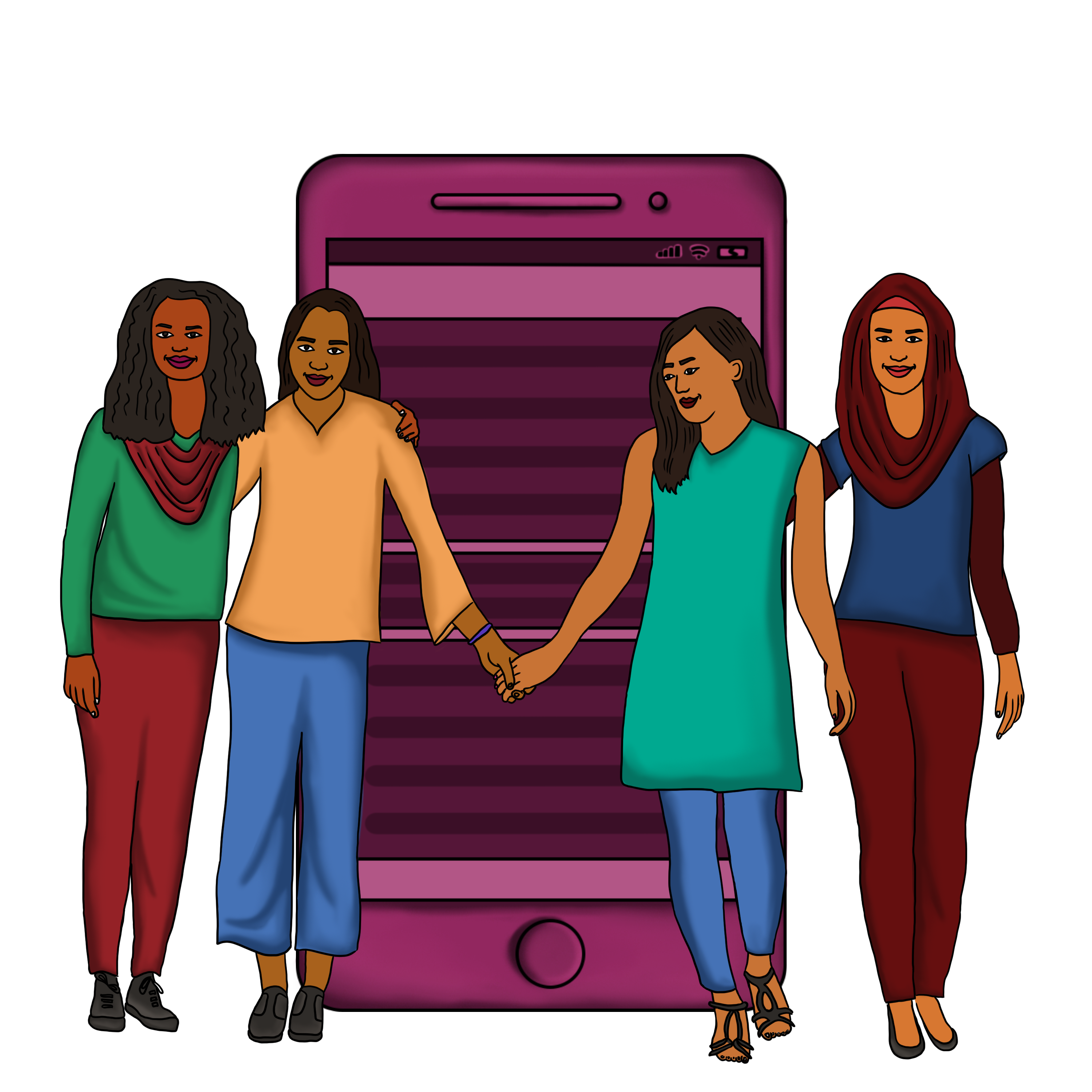Cyberbullying can take many forms, and varies depending on where you find yourself using the internet in the world. Yet some common examples include Identity Thefts, Transaction Fraud, Advanced Fee Fraud, Hacking and Piracy. Therefore given the number of threats, we’ve compiled a list that can be your guiding light online.

Think before you Post
Pause before posting. Never post private information publicly. Ever. For you never know who’s lurking in those virtual corners. If you use a vareity of social media applications like Foursquare to check-in, Facebook to post nail art and Instagram to get your contour on fleek – all the while making friends from all over, make sure to know where these friends are from. Especially if you get friend requests from people you haven’t met in person. Facebook is especially good with customizing your privacy settings – so you can control exactly how you want to share with EACH person you may or may not be connected with. Furthermore always go through a social media cleanse every three months or so – where you review your privacy settings on ALL your platforms.
Secure Websites
When you open up a website, ensure that the URL begins with “https,” which encrypts your login details before transferring it to the server. This way your private data is kept safe from hackers. You can tell which site is safe to visit, if it has a ‘lock’ icon in the browser bar. You can download this EFF extension for your browser, which automatically encrypts all the data.
Shield your personal information
The tales of the internet creeps never get old. And to warn against it is to be like your wise desi aunty – you know she knows better, just heed her advice!

This is the very reason why you should never share any sensitive and private information online. Especially now that everyone tends to screenshot everything without us knowing about it. Therefore one good app to share pictures and moments is SnapChat. Not only is this app littered with some mind blowing filters but it also allows you to control with who exactly you share content with. This is because every time you share a snapshot of your life with your friends, you can time for exactly how long your pictures and videos are displayed. Furthermore if someone takes a screenshot, you get a notification about this. Finally this app also allows you to share content without it being stored on their servers, unlike Facebook and Google+.
Report Abuse
One of the reasons why being on the internet is a surreal experience is because it is a magical space that can be a transformative experience – albeit you must know how to use this power well. It is so that when you get detractors, creeps, stalkers and haters – you must know the right tricks to deal with them, so this negativity does not affect your online experience. One of the best ways to deal with unwanted trolls is to report and block them. You can report a user who is troubling you on most social networks, like Facebook which allows to block a user and report him. Furthermore you can also ask your friends to report and block this user – for the website itself to take notice quicker. This is because the more the number of complaints – the quicker the shutdown is. For details on how to report a violation on Facebook, please click here. Twitter also has a report abuse feature. For reporting a profile on Linkedin, please click here.
Google yourself
Gone are the day where you had to rely on a third person to let you know what was going on behind your back in the world. This is because with increased online activity there is often a distinct trace we as users leave behind. This is why it is always a good idea to Google yourself. Meaning that you use search engines such as a Google, Bing or Yahoo to search for yourself and then go over the search results that come up.
If you are smart about how you use your tools and applications – every hit you get is the one you’ll be aware of. But chances are there also might be information that you were unaware of or you didn’t know was available to the general public online. Once you know then you can take proactive measures to privatise your activity or ask a website to remove information about you. Another good idea is to set up Google Alerts for your name, to see how many times people search on the web and where on the web is your name appearing.
Go Incognito on shared computers
More often than when using a shared computer or smartphone internet browser – the best option is to use the in-built incognito feature. This is because often when logging into accounts such as Facebook, Google or eve Twitter, you stay logged in even if you close the browser. But when in incognito mode not only does your accounts get closed there is also not searchable and download history.

And even though this may not be foolproof browsing session – as your data is still trackable through Internet Service Providers, you still have the luxury of being anonymous, as your webforms, passwords, cookies are also not saved. You can open up a new Private Window in Firefox, or turn on the Incognito mode in Chrome via clicking on the icon that looks like in the top-right corner of your browser.
Use smartphones wisely
If your smartphone has a built-in geolocation functionality (GPS trackers), which can provide your precise location to your mobile network operator by default, make sure that you turn it off to save your battery as well as protect your digital security. Check out this interesting resource by Tactical Tech on how to protect your mobile security.



